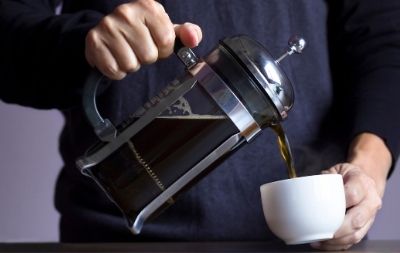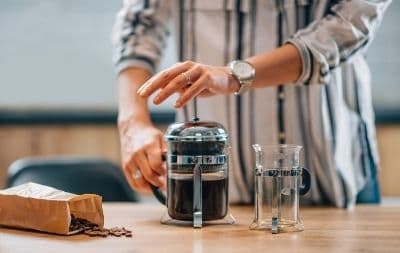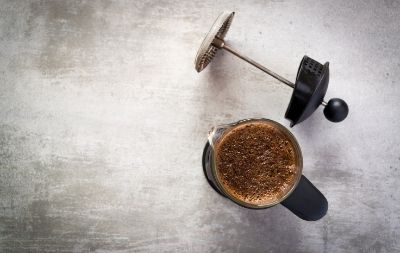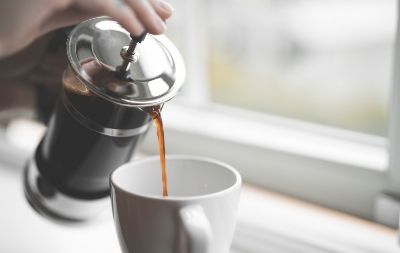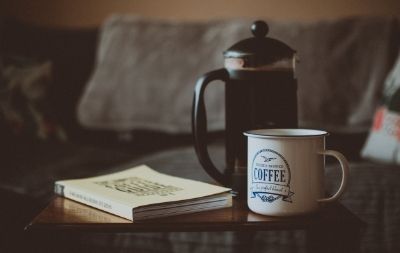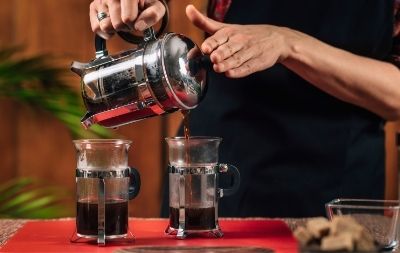I’ve always heard that French Press coffee should be prepared using coarse coffee grounds, but I never understood why that was. So I did a bit of research to find out.
French Press coffee needs a coarse grind to prevent the coffee from tasting bitter due to over-extraction of organic compounds from the beans into the water. This is because French Press has a longer brew duration and because the coffee grounds are fully immersed in water.
Read on to learn more details about why a coarse grind matters when preparing French Press.
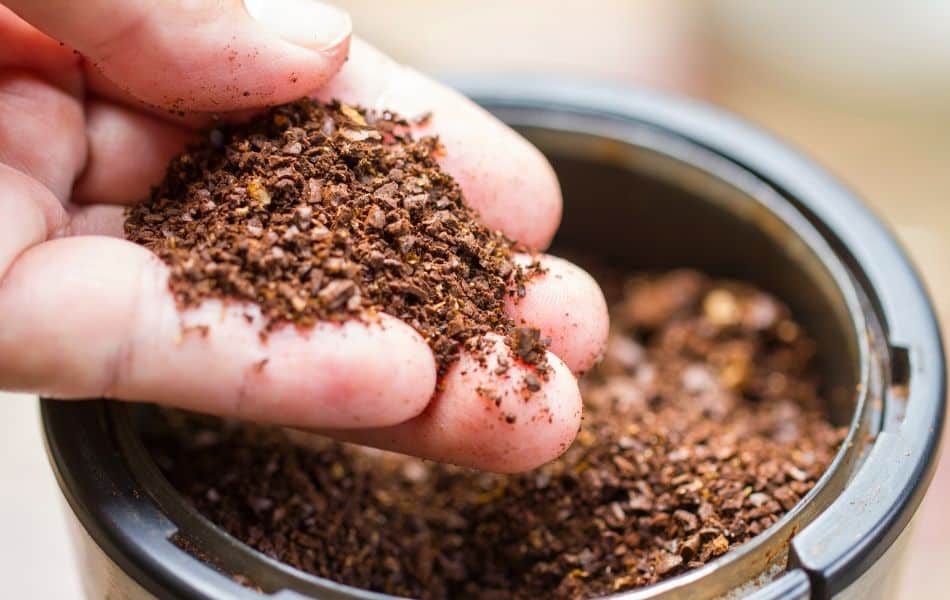
Coarse grounds have a slow extraction rate that’s best for French Press coffee
There are two primary methods for brewing coffee: the drip method and the immersion method. Each style requires a different grind density to prepare a tasty beverage.
Drip coffee requires finer grounds for a higher extraction rate
The drip method involves pouring water over coffee grounds and letting gravity draw the water through the beans and a filter. Usually into a cup below.
Because the water is drawn through the grounds somewhat quickly, it’s best if the grounds are more fine so the flavors are extracted more quickly. Finely ground beans have a greater surface area, which allows flavors to extract more quickly.
Coarsely ground coffee will under-extract and produce a sour and watery beverage.
Immersion coffee requires coarser grounds for a lower extraction rate
Immersion methods, such as the French Press, involve submerging coffee grounds in water until fats, acids and organic compounds are drawn out from the beans. This process takes about 4 minutes.
Because the grounds remain immersed in water for this amount of time, it’s important that the rate at which these compounds are extracted from the grounds is not too fast. If it is, then the coffee will taste bitter and hollow.
This is referred to as over-extraction.
The solution for over-extracted French Press coffee is using more coarsely ground beans. This means the beans are ground more loosely and have larger pieces.
Larger pieces actually have a smaller surface area, which means there is less contact between the grounds and the water. This causes the rate of extraction to be slower than finely-ground beans.
Finely ground coffee can clog the French Press filter
Finely ground coffee is more likely to clog the filter when pressing your French Press. This will make it difficult to fully submerge your plunger, which will result in an inconsistent flavor from one cup to the next.
Also, finely ground coffee particles will be forced through the filter and into the final beverage. This will give your coffee a grainy texture that many people find unpleasant.
French Press grounds do not need to control water flow
Water flow rate is not a factor when preparing French Press coffee. This is because the grounds are fully immersed in water throughout the entire brewing process. This is another reason why a coarse grind is suitable for the French Press brewing method.
On the other hand, water flow is very important for drip coffee methods. The rate at which water flows through coffee grounds determines how many compounds are extracted from the beans.
Too quick and the coffee will be under-extracted and will taste sour and watery. Too slow and it will be over-extracted and will taste bitter.
Therefore, the grind density for drip coffee needs to be fine enough to limit the rate at which water flows.
How to grind perfectly coarse French Press beans
Use a conical burr grinder instead of a blade grinder
For starters, I recommend using a conical burr grinder instead of a blade grinder. The difference is that burr grinders are made up of two revolving cones that “squish” beans together at a uniform size, whereas blade grinders use fast-spinning blades to chop beans into pieces.
Burr grinders produce more evenly-sized grounds, which results in your coffee having a more consistent taste. This is because the bean fragments extract flavor at a consistent rate, whereas uneven grounds extract at different rates, making the coffee taste sour or bitter.
Set your grinder to a coarse grind setting
French Press grounds should be more coarse than pretty much any other style of coffee you make – other than cold brew.
For comparison, standard drip coffee uses a medium grind size. Your French Press grounds should be more coarse than that. Meaning, more loosely ground and with larger pieces.
Some people compare coarse grounds to sea salt in terms of size.
Can grounds be too coarse for French Press coffee?
Yes, grinding your French Press beans too coarsely will result in a coffee that’s under-extracted and tastes sour or watery. The reason for this is due to the ground pieces being too large in size and not having enough surface area to make contact with the water.
The flavor of your French Press can change depending on several factors outside of your grind size, such as the water temperature and brew time. However, many coffee enthusiasts suggest brewing French Press at around 204 degrees F (92 degrees C) for four minutes.
Therefore, your grind size is your best option for altering the flavor of your coffee.
You can adjust your grind size up or down based on the flavor of your coffee, assuming you use the suggested water temperature and brewing time. Bitterness indicates your grind is too coarse. Meaning, you need to grind it more finely. Sour or watery flavors indicate your grind is too fine.

